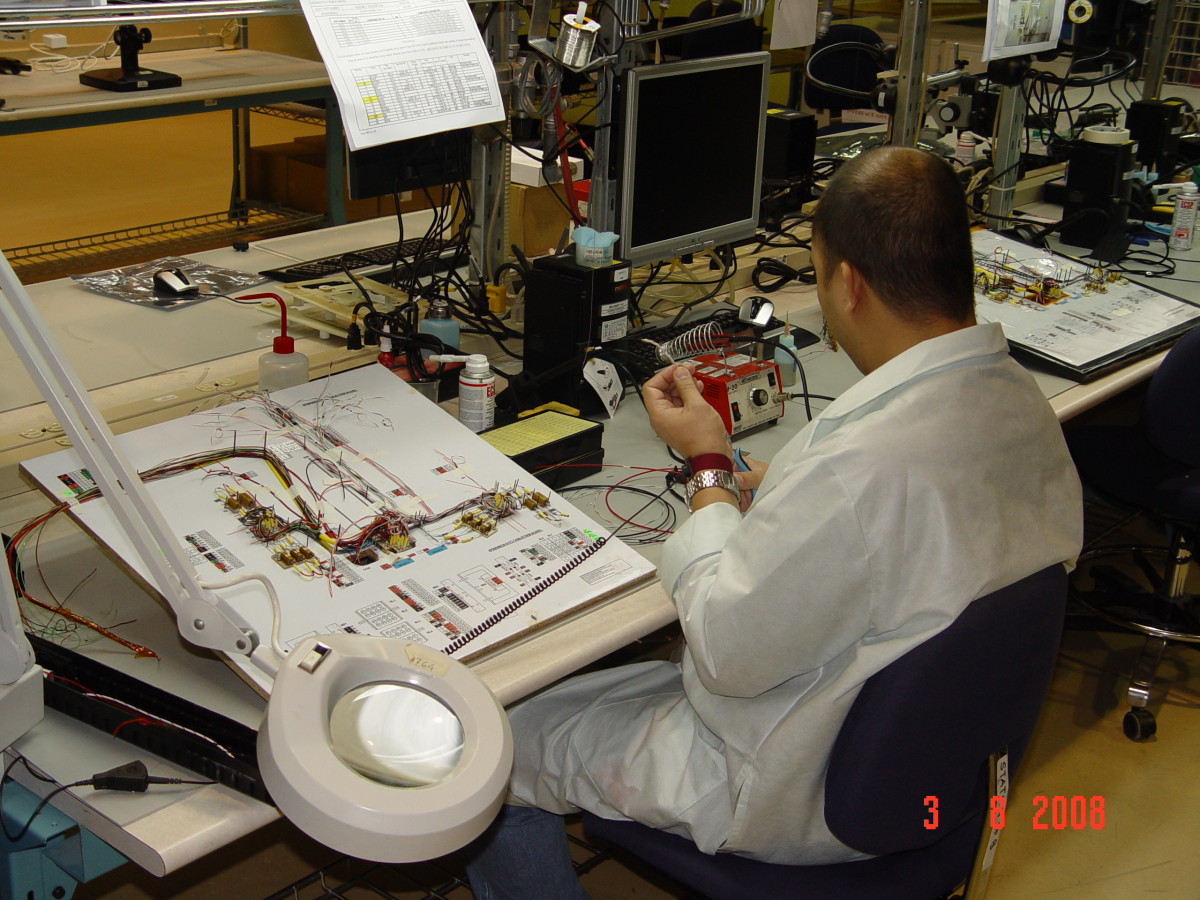What Is It Like to Work in a Worker Owned Cooperative

Worker Cooperatives vs. Traditional Companies
Most people have worked for someone else at some point in their life. You have a pretty good idea what that is like. Of course there are many variations, but the idea is basically the same. You sell your labor to someone else in return for money. As a result, the employer controls most of your life while you are working and sometimes even when you are not.
For many, owning your own business has been a dream or goal to achieve. The idea is that owning your own business has the potential for better than average income, a higher standard of living, a higher status and so on. A few have become fabulously rich. Most have not. Many more have only scraped by with great sacrifices.
In our society, we are constantly bombarded with messages about becoming successful. We and well meaning educators have put a lot of pressure on our children that your value comes from doing more and having more than other people. Owning your own business is hard, so a whole industry of magazines and late night infomercials are catering to a fantasy of a shortcut to easy riches. For the vast majority of us, it remains a fantasy. For those who succeed, it usually comes by exploiting customers, lenders and workers, sometimes even themselves.
When you go to work in a traditional job, you accept the fact that you have to leave much of your identity at the door and only get it back when you leave. While you are there, you are completely under the control of the employer. In a worker cooperative, things are very different. In a worker cooperative, you get to elect management. You control them, not the other way around. In a worker cooperative, your value does not come from the height of the pedestal you are sitting on. It comes from how well you work with others to achieve goals for the entire community and it results in a decent living for everyone..
In traditional companies, whoever owns the capital invested in the company calls the shots. In a worker cooperative, capital is nothing more than a tool to obtain the things you need to produce products and services. The workers govern the company through the democratic principle of one person, one vote. No one outside the cooperative can own voting shares. Worker cooperatives are independent, self-governing and autonomous.

Democratic Governance
We live in a democracy and every couple of years we go to cast our votes. Many of us simply vote for whoever we always voted for or whoever the party leaders think would be good leaders. Our day-to-day engagement is quite limited. Perhaps we follow the headlines on the news, but relatively few actively participate in the conversations going on in our local communities. It is the politicians’ job, not ours That could happen in a cooperative as well, but that is rare.
Workers in worker cooperatives are usually very engaged in the governance of their companies. This is because there is a direct connection between the size of their paychecks and how well the company is doing. Because of this direct connection, they are also often more likely to become engaged in local politics in their communities. In a traditional company, the success of the company impacts the shareholders’ paychecks to a much greater extent than it does for the workers. The workers pretty much get the same pay regardless of how the company is doing. The arrangement is to pay workers enough so they will continue to come back - or not, if that is the goal. With few exceptions, nothing else and nothing more is expected of them. They are not interested in nor need to know how successful the company is.
When you work in a traditional company, there is often an atmosphere of us vs. them, particularly in unionized companies. In a worker cooperative, everybody is sitting on the same side of the table. Everyone is working for the common good. Does that mean there will never be conflicts in a worker cooperative? Well, of course not, but everyone has a say in resolving the conflict. No one can dictate the terms of the relationship. No one has more power than another. No one has power over another.
Some cooperatives have elected to make decisions by consensus. That means that no one, not even the majority of the participants can override any one of its members. For most people, this is a very foreign concept and a little hard to understand. Problems arise when a single person stands in the way of important decisions. Making decisions by consensus comes with a great deal of responsibility. Sometimes it requires an individual to step aside and yield for the benefit of the whole group. It does not happen by force. It only happens when the person values the group more than the individual and voluntarily steps aside.
Governance by consensus might work for a small tight-knit group of like-minded people. For larger groups, it may become impractical and some form of majority rule like we are used to may be adopted. The point is that the workers themselves decide how they want to be governed.
Because everyone is an equal owner, everyone will have an equal opportunity to state their opinion without fear of retaliation. Indeed, you have a duty to do so. Most who have tried it will tell you this is hard and it is. For most of us, it certainly takes a significant attitude adjustment to make decisions this way. If the decision turns out to be wrong, there is no one to blame but you if you did not speak up with your idea.
Furthermore, with the ability to voice your opinion, comes the obligation to listen to others and give them feedback without resorting to negativity.
Getting Paid
So how do workers get paid? Worker cooperatives, just like other companies, sell products or services. The revenue is used to pay for fixed expenses like rent and utilities. Some is used to pay for raw materials.
Wages
Traditional companies consider labor to be an expense closely tied to amount of production. Worker cooperatives, on the other hand, tend to consider wages and benefits to be fixed much like rent. It needs to be paid regardless of income from sales. Workers in worker cooperatives have a say in how much should be paid out as wages and benefits.
Surplus
Surplus is roughly the equivalent of profit. Workers have a say in what should happen to what is left over after all the bills are paid. Typically, most will be either paid out to the workers or deposited into their individual capital accounts according to how much they worked that year. Most also retain a portion to be owned collectively, not individually, by the workers to make future investments in equipment and the like. Finally, some also set money aside for education which is often done in cooperation with other cooperatives. For example, as owners, workers need at least basic financial knowledge. They need to learn how to participate in the democratic process, how to facilitate effective meetings and how to resolve conflicts. The main difference is that the profit is distributed according to work contribution, not amount of capital contribution.
Joining a Worker Cooperative
Membership
The way you join a cooperative is also very different. There are basically three ways:
- Start one from scratch.
- Converting a traditional business to a worker cooperative.
- Join an existing cooperative.
in most cooperatives, new hires are required to spend at least some time working as a regular employee before they can be considered as an owner. Like most other things in cooperatives, there are no rules for how long. Each cooperative makes that decision for itself through the democratic process. You cannot remain an employee forever, though. At the end of the probationary period, you must either become a member or leave. This may seem a bit harsh, but it prevents a small group of owners from controlling a large group of employees.
Qualifications
When hiring, cooperatives tend to focus far more on soft skills like ability to work in a group setting than traditional companies who focus more on hard skills. If the person does not work out, he can always be fired at will or ordered to follow directions. Cooperatives look at whether the new hire will become a good owner some day. Getting rid of an owner who does not work out is very difficult and painful, so this is very important for them.
Membership Fee
Do you have to pay to join a cooperative? Yes, but it is not a cost. It is an ownership share. You get it back should you decide to leave the cooperative. The buy-in serves several purposes:
- It helps provide some of the capital the cooperative needs to operate.
- It helps demonstrate to fellow workers that you are as committed to the success of the cooperative as they are.
- Finally, it helps to demonstrate to lenders that you believe in the success of the cooperative and are willing to risk some of your own money to achieve it.
Voting shares cannot be transferred or sold, but must be sold back to the cooperative. This prevents control from leaking out of the cooperative and into the hands of investors. For the same reason, you cannot retire, i.e. stop working, and still be a member. Only actual workers can be members. Again, it has to do with control. No one outside the cooperative should be able to exercise control over anyone inside it.

Solidarity
So what happens when sales do not quite match production? A traditional company might solve the problem with temporary layoffs. Worker cooperatives usually take a different approach.. Lowering the price to boost sales would not work in a traditional company because it would cut into profits. Profit is sacred. Labor is expendable. In a worker cooperative, lowering the price to boost sales would be perfectly acceptable as long as expenses are still covered. Another way would be to temporarily reduce everybody’s hours, even everybody's pay if necessary. Layoffs are practically unheard of in worker cooperatives.
What happens if the market for your product or service changes? Worker cooperatives are generally quite conservative. They tend to stick with what has been tried and true. Nevertheless, they still remain quite flexible. For example, some solar panel installers started offering home weatherization when people stopped buying solar panels for a while. This happens because their focus is on that weekly paycheck for everyone instead of profits for the few. They found a creative way to continue to make that happen despite a slowdown for their core business. This is an example that participatory management trumps traditional top-down management. All in all, workers working in worker cooperatives have much better job security and job satisfaction than other workers.
Multiple Bottom Lines
Because profit is not the driving force, many worker cooperatives have different criteria for what success means to them. Obviously, just pay and democratic control are at the top of the list, but many also consider respect for the environment or work/life balance for families to be of great value.
Conclusion
Working in a worker cooperative is very different from working in a traditional company. It is not for everyone, but for those who thrive on community it is an intensely satisfying way to work.








